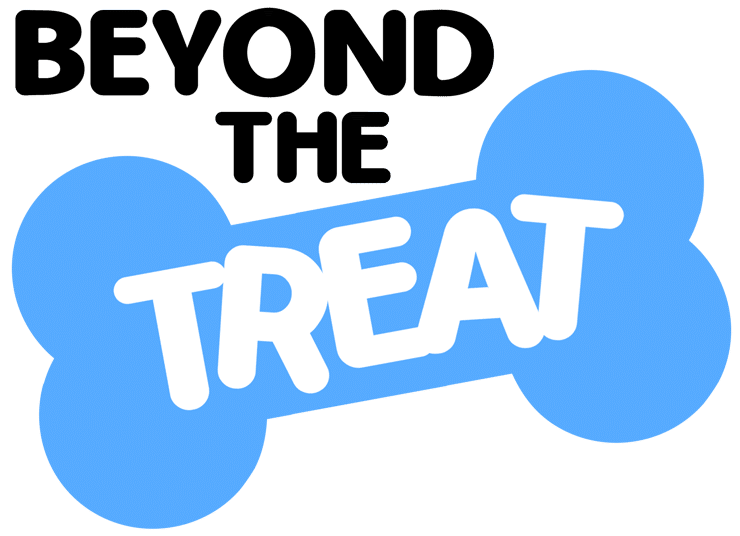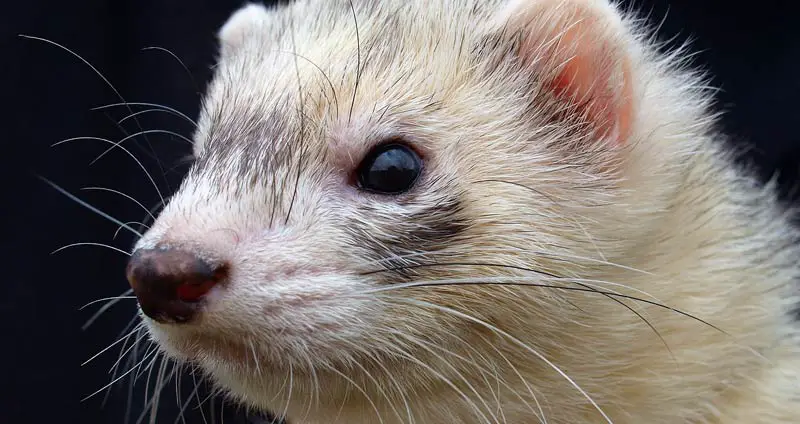Ferrets are long and fluffy tubes of energy. They’re very playful and outgoing and always able to put a smile on your face. All of this energy doesn’t come out of nowhere, though. In order for your ferret to be as happy and healthy as possible, they need to be fed an optimal diet.
So… what do ferrets actually eat? What should your ferret be eating? This post will tell you everything that you need to know about proper ferret feeding and nutrition.
Table of Contents
What Do Ferrets Eat In The Wild?
First and foremost, when determining what a ferret should be fed, it helps to know what they naturally eat in the wild. Over thousands of years, the digestive systems of ferrets have become fine-tuned for processing the foods that they commonly come into contact with.
Because of this, it’s very important that your ferret has a diet that’s similar to what they would naturally eat in the wild!
Ferrets are unique in the sense that they’re obligate carnivores, which means that they absolutely need to eat meat in order to get all of the nutrients that they need to live. Unlike standard carnivores that eat meat but can also eat plant matter, ferrets get by on only eating meat. Ferrets can eat plants, but they can’t properly digest/process it, causing complications.
In the wild, ferrets eat almost anything that they can catch. This includes smaller animals like lizards and larger animals like rabbits, eats, birds, and even snakes. If a much larger animal like a pig were given to ferrets, they’d likely eat that, too.
So, wild ferrets eat meat. This is the main focus you should have when planning out your ferret’s diet.
What Do Pet Ferrets Eat?
While it’s been established that wild ferrets eat meat, it doesn’t mean that you have to feed your ferrets ribs and pork tenderloins every night in order for them to be healthy. Some owners do feed their ferrets raw protein like ham and eggs, but most owners don’t.
The healthiest pet ferrets eat a fairly diverse diet. The optimal ferret diet consists of these different parts:
- Healthy ferret-specific high-protein pellet food
- High-protein and low-fiber cat food
- Health-focused treats
As long as your ferret has a diet consisting of those three aspects, they should be quite healthy! However, it isn’t as straight-forward as that. There are some foods and treats that on the surface seem great for ferrets, but upon further research prove to be quite harmful.
Therefore, one must look at the nutritional content of the foods that they’re feeding their ferrets. Ferrets have specific nutritional needs that need to be met, and deficiencies in macro or micro nutrients could prove to be a hazard.
Optimal Ferret Food Nutrition
It may be intimidating looking at the nutritional content of different foods and trying to figure out what’s good and bad for ferrets, but it’s actually not too difficult. There are some nutritional benchmarks that you should look for in every ferret food.
So, what exactly defines a good, healthy ferret food? One that has all of these characteristics:
- Protein percentage around 40%-60%
- Fat percentage around 18%-22%
- Fiber percentage around 3%-5%
- At least the first ingredient is meat such as chicken, turkey, or duck
- A lack of grains, fruits, and vegetables (especially peas – dangerous to ferrets)
The high protein and fat content requirements stem from a wild ferret’s diet of fresh-caught prey. Too little protein or fiber can contribute a large amount to undernourishment of your ferret. On the other end of the spectrum, too much fat can result in excessive weight gain.
Fiber around 5% is the best for ferrets as it helps them process and digest food easily. They have extremely frequent bowel movements, so they need the fiber to support that.
Additionally, due to a ferret’s requirement for meat, at least the first ingredient of their food should be a pure protein, such as chicken, turkey, and duck. Foods with grains or fillers as the first ingredient will not provide near the correct nutritional content.
Finally, grains, fruits, and vegetables should all be avoided due to them not benefiting ferrets at all. They’re worthless fillers. This will be elaborated on a bit later in this post.
As for ferret treats, it may be tempting to get treats from companies like Marshall or Kaytee. These treats tend to be very low-quality and are full of fillers. Instead, opt for treats that are very simple and wholesome like salmon oil.
Foods To Avoid Feeding To Ferrets (At All Costs)
When thinking about what ferrets eat, it’s also important to think about what ferrets can’t eat. In fact, these foods need to be avoided at all costs. Consumption of these could have negative effects ranging from slight indigestion to eventual death.
Typically very small amounts of most of these foods won’t have lasting effects. It’s always better to be safe than sorry, though.
- Fruits / Vegetables – First of all, ferrets simply don’t benefit from fruits and vegetables. Their bodies can’t digest these foods and process them for nutrients. This can result in indigestion and diarrhea — both things that your ferret doesn’t want. Additionally, they can be high in sugar, resulting in weight gain.
- Grains – There’s a good chance that most foods will contain a little bit of grain. This tends to be fine. It can help to make the food a bit more filling. However, you should avoid foods that put a large emphasis on grains. They barely benefit ferrets and are mostly used to pad out food.
- Peas – This is included in the fruits and vegetables part, but it deserves its own section. Peas are known to be very harmful for ferrets, and they’re present in many different foods because they’re also more of a “filler” ingredient for protein. If a food contains peas prominently anywhere, stay far away.
- Carbohydrate-heavy foods – There are quite a few foods that may seem good for ferrets, like peanut butter, but they contain large amounts of carbohydrates. This isn’t good for ferrets, as their meat-focus digestive systems aren’t able to handle these carbohydrates. This can result in blockages and general indigestion.
- Sugar-heavy foods – It’s not hard to imagine that wild ferrets don’t have a lot of sugar in their diets. Foods that are high in sugar can result in significant weight gain along with dreaded indigestion
- Overly-processed foods – This applies mostly to meat. It’s typically fine to give your ferret some chicken or ham, but it’s not okay when those meats are processed like crazy. Pre-packaged meat usually contains a lot of preservatives and additives that make it very unhealthy for ferrets. Always go for fresh.
How To Properly Feed Your Ferret
It’s one thing to know what ferrets eat and what their diet should look like, but it’s another thing to know how to feed your ferret. That’s right — there’s a specific way to feed your ferret. Luckily, it’s not that complex either.
First of all, the digestive system of a ferret is incredibly short and their metabolism is very fast. Therefore, there should always be food ready for them to eat whenever they’re hungry. Usually ferrets have good control and only eat when they’re hungry, so they should stay at a healthy weight with a constantly-full bowl.
In addition to feeding ferrets frequently, you should know that they’re picky. Ferrets are known to imprint on food and not accept another food that you try and switch them to (to the point of starvation). Because of this, it’s recommended that you supply your ferret with a mix of two or more different foods to keep things diverse.
This is where the cat food and ferret food combo comes into play.
You should also always stay observant of your ferret. If they’re eating a certain food and don’t look particularly healthy, it may be a good idea to re-evaluate their nutrition. Don’t be afraid to change things up if they don’t seem to be working out.
Best Ferret Foods Available
As stated, it can be a bit intimidating to go online or go to a pet store and try to find the perfect foods for your ferrets. Fortunately, we’ve gone ahead and done the hard work for you.
Below we’ve highlighted the best ferret food, best cat food for ferrets, and best ferret treat. We’ve also analyzed their nutritional content to make sure that they’re perfect for ferrets.
Best Pelleted Ferret Food
Fat = 16%
Fiber = 5%
First ingredients = Chicken meal, organic chicken, chicken fat
An overall excellent ferret food that's as close to a raw diet as you can get without actually going raw. Great protein and fat content while also having an alluring taste and great shape. Additionally, contains almost no undesirable ingredients besides an acceptable amount of beet fiber.
Best Cat Food For Ferrets
Fat = 20%
Fiber = 3%
First ingredients = Deboned turkey, deboned chicken, whole eggs
One of the favorite cat foods among ferret owners. Its protein and fat levels are perfect to mix with the Epigen food above, and its ingredients are also quite wholesome. One problem is that it does contain peas, but it's not a very prominent ingredient so it shouldn't be a big issue. Other than that, it's very wholesome and contains a lot of beneficial ingredients.
Best Ferret Treat / Supplement
In Conclusion
Hopefully by this point you know just what ferrets eat and what you should be feeding your ferret. Fortunately it isn’t a very difficult concept to grasp.
Ferrets are meat eaters and their diet needs to reflect that. They need high-protein, high-fat foods that are close to a natural diet. Two or three foods should be combined to round out the nutrients and keep a ferret from imprinting on a particular food.
Ferretone or salmon oil should also be provided to diversify the diet even further and promote healthy skin and fur.
Certain foods should be avoided, such as fruits, vegetables, and carbohydrates, but it isn’t hard to avoid these.
By feeding your ferret a diet like the one highlighted above, you’ll be providing it with the nutrition that it needs to live a long, healthy, and very playful life. What ferret owner doesn’t want that?




